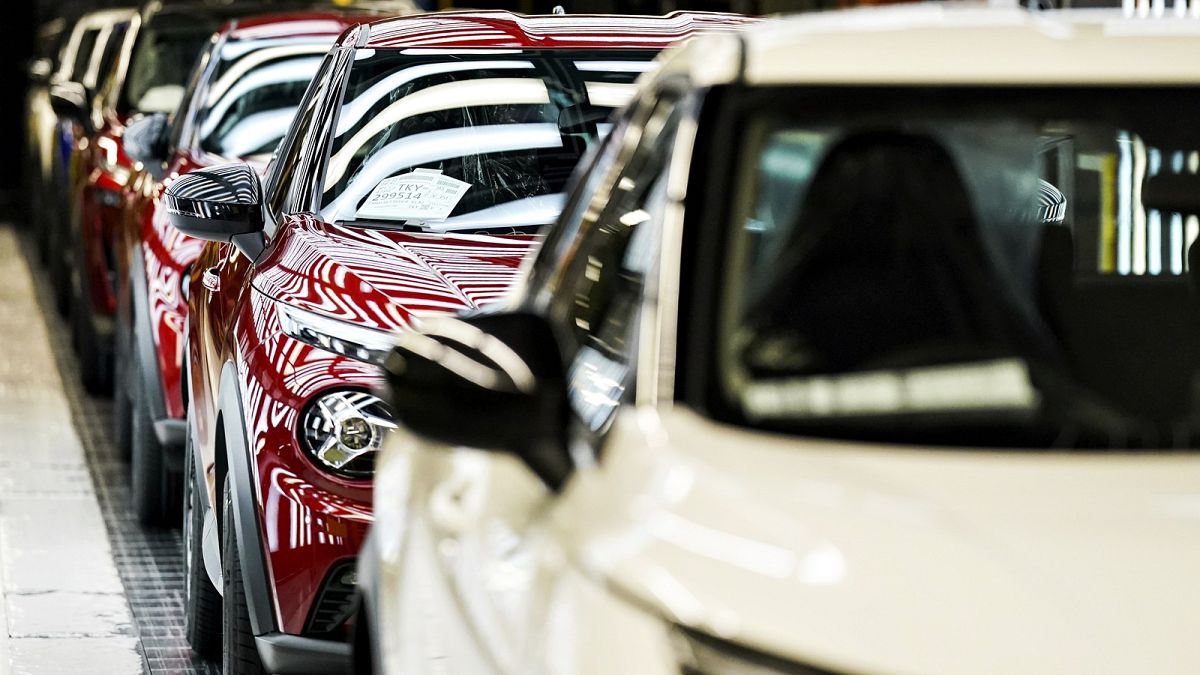Rome and Berlin are teaming up with the European automotive industry to call for the European Union to relax CO2 emissions standards for cars. The EU is aiming to end the sale of new petrol and diesel models by 2035, but Italy and Germany are pushing for a reconsideration of this ban. Italian industry minister Adolfo Urso stated that it is now “certain” that the ban will not be achieved and proposed bringing forward a review clause in the legislation from the end of 2026 to early 2025. The European car industry is facing collapse, with predictions of tens of thousands of redundancies unless the EU changes course.
Prime Minister Giorgia Meloni has described the 2035 ban as “ideological madness,” and the European Automobile Manufacturers’ Association (ACEA) has recently appealed to postpone the application of more stringent emissions limits. Sales of electric cars have seen a significant drop, with market share falling by almost a third compared to last year. ACEA’s board of directors highlighted the lack of essential conditions for the production and adoption of zero-emission vehicles, including charging and hydrogen refilling infrastructure, competitive manufacturing environment, affordable green energy, purchase incentives, and secure supply of raw materials.
Carmakers currently have to ensure that the emissions of all cars sold in a given year average no more than 115.1 grammes per kilometre, with the limit tightening to 93.6g next year. The dominance of larger SUV models in the market, along with falling electric vehicle sales, makes achieving these targets more challenging. The European Commission believes that the industry still has time to meet their targets for the next 15 months and has designed policies to allow for industry adaptation. Despite pressure from the automotive lobby for urgent relief measures, the EU is standing firm on the current emissions reduction targets.
The EU has set deadlines that mandate only cars emitting no CO2 at all can be sold in the EU as of 2035, essentially banning petrol and diesel models. However, a clause inserted by Germany calls for a review in 2026 on the potential allowance of cars running on synthetic ‘low-carbon’ fuels. This would provide a reprieve for the internal combustion engine. The automotive lobby is also aiming to bring forward the review for heavy goods vehicles to 2025. Industries that benefit from an accelerated electrification of Europe’s energy system are supporting the EU in sticking to its current targets.
Overall, the push from Rome and Berlin, along with the European car industry, to relax CO2 emissions standards and reconsider the 2035 ban on petrol and diesel models reflects the challenges faced by the sector. The decrease in electric vehicle sales, lack of necessary infrastructures, and greater dominance of larger SUV models are all contributing to the industry’s struggles in meeting emissions targets. The EU’s stance on giving the industry time to adapt and the pushback from other sectors that stand to benefit from electrification highlight the complex dynamics at play in shaping Europe’s automotive industry’s future.











